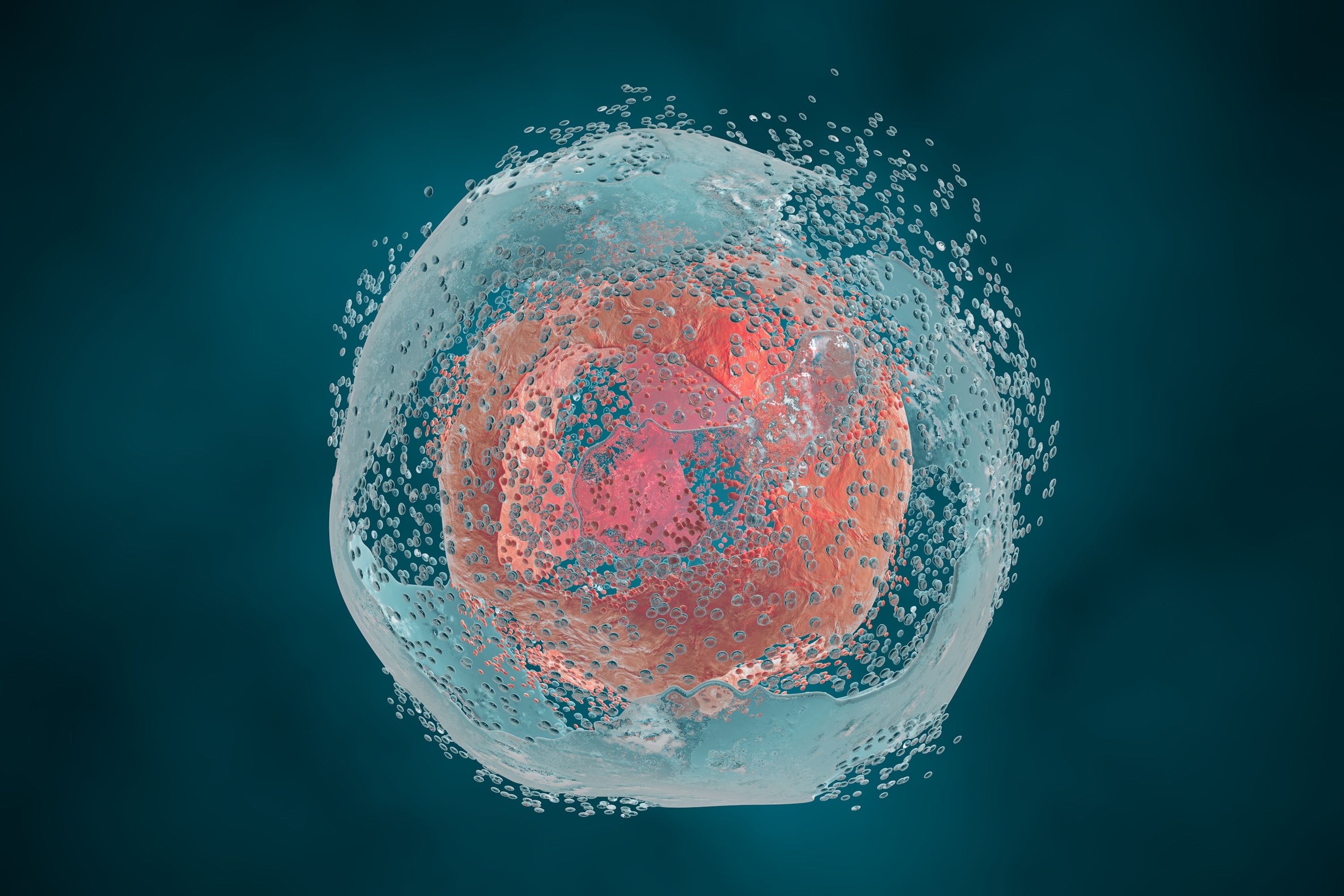New study shows how protein aggregation can help fight cancer
Targeting KRAS with Pept-ins™: a new therapeutic strategy for difficult-to-drug proteins
Banner image: cancer-targeting Pept-ins™ ©Aelin Therapeutics
Leuven, 28 February – The KRAS oncogene drives the growth and spread of many types of cancer. It is notoriously difficult to target with drugs. Now, research from the VIB-KU Leuven Center for Brain & Disease Research and VIB spin-off Aelin Therapeutics showed that synthetic peptides, Pept-ins™, can induce the misfolding and aggregation of the oncogenic KRAS protein, inhibiting its function. This opens up new therapeutic possibilities for the treatment of cancer. Their work was published in PNAS.
Joost Schymkowitz and Frederic Rousseau, the last authors of the study: “We are very glad to see that our targeted aggregation technology can be harnessed to target a difficult-to-drug oncogene, such as KRAS. We hope this work will one day help improve the lives of patients. It also shows the value of close collaborations between academia and industry to tackle big challenges.”
In short
- KRAS is a protein that regulates cell growth and division, but it can become overactive and promote the growth and spread of cancer cells. KRAS is notoriously difficult to target with drugs.
- Researchers used synthetic peptides called Pept-ins™ to induce the misfolding and aggregation of the oncogenic KRAS protein, inhibiting its function.
- This work contributes toward developing a new class of therapeutics to treat cancer.
Scientists have discovered a new approach to target KRAS, a protein involved in cancer development. By exploiting the protein’s intrinsic vulnerabilities, specifically aggregation-prone regions (APRs), the team demonstrated the ability to misfold KRAS into protein aggregates using synthetic peptides called Pept-ins™. This approach led to the inactivation of oncogenic KRAS. These findings prove that targeting the intrinsic misfolding propensity of the KRAS oncoprotein can be a promising therapeutic strategy for difficult-to-drug proteins such as KRAS.
.jpg)
Turning an undesirable quality around
KRAS is a protein that helps regulate cell growth and division. However, when mutations occur in the KRAS gene, the protein can become overactive and promote the growth and spread of cancer cells. This makes KRAS an ‘oncoprotein’, or a protein that can contribute to the development and progression of cancer. KRAS mutations are often associated with a poorer prognosis.
Like almost all proteins, KRAS contains aggregation-prone regions or parts of a protein that tend to stick together and form clumps or aggregates. When these regions become exposed or unfolded, they can interact with other proteins or themselves, causing the protein to clump together. Because the function of proteins strongly depends on their 3D shape, having them stick together in aggregates can be harmful to cells and can lead to various diseases, such as Alzheimer’s disease and Parkinson’s.
But Joost and Frederic, the scientific founders of Aelin, had the idea to turn something problematic—protein aggregation—into a weapon against proteins and cells we want to destroy. With Pept-ins™, the trademark technology platform utilized by VIB spin-off Aelin Therapeutics, they can trigger protein aggregation by seeding the process with a synthetic peptide containing an aggregation-prone region matching one found on the target protein.
In this latest study, the researchers exploited the aggregation-prone tendencies of KRAS to inhibit its function. They targeted segments with Pept-ins™, inducing KRAS misfolding and aggregation. The possibility of targeting primary sequence segments to inactivate proteins by misfolding opens opportunities for targeting proteins such as KRAS.
Hans Ulrichts, Chief Development Officer of Aelin: “This study illustrates the potential Pept-ins™ have as a new drug modality that can be designed based on the amino acid sequence of target proteins. This research fosters the further progress we are making in cracking the code for the development of a new class of therapeutics to treat severe diseases.”
Publication
Exploiting the intrinsic misfolding propensity of the KRAS oncoprotein. Janssen, et al. PNAS, 2023. DOI/10.1073/pnas.2214921120.
India Jane Wise
Joran Lauwers
About the VIB-KU Leuven Center for Brain & Disease Research
The big impact of bacteria on our health, the use of yeasts to enhance the production of chocolate, beer or bioethanol, yeast as a model system for studying human disease... these are just a few of the research areas for the scientists at the VIB-KU Leuven Center for Microbiology. Their research also has important implications in various fields of application.
About KU Leuven
KU Leuven is Europe’s most innovative university (Reuters) and ranks 45th in the Times Higher Education World University Rankings. As Belgium's largest university, KU Leuven welcomes 60,000 students from over 140 countries. Its 7,000 researchers are active in a comprehensive range of disciplines. KU Leuven is a founding member of the League of European Research Universities (LERU) and has a strong European and international orientation. University Hospitals Leuven, its network of research hospitals, provides high-quality healthcare and develops new therapeutic and diagnostic insights with an emphasis on translational research.



